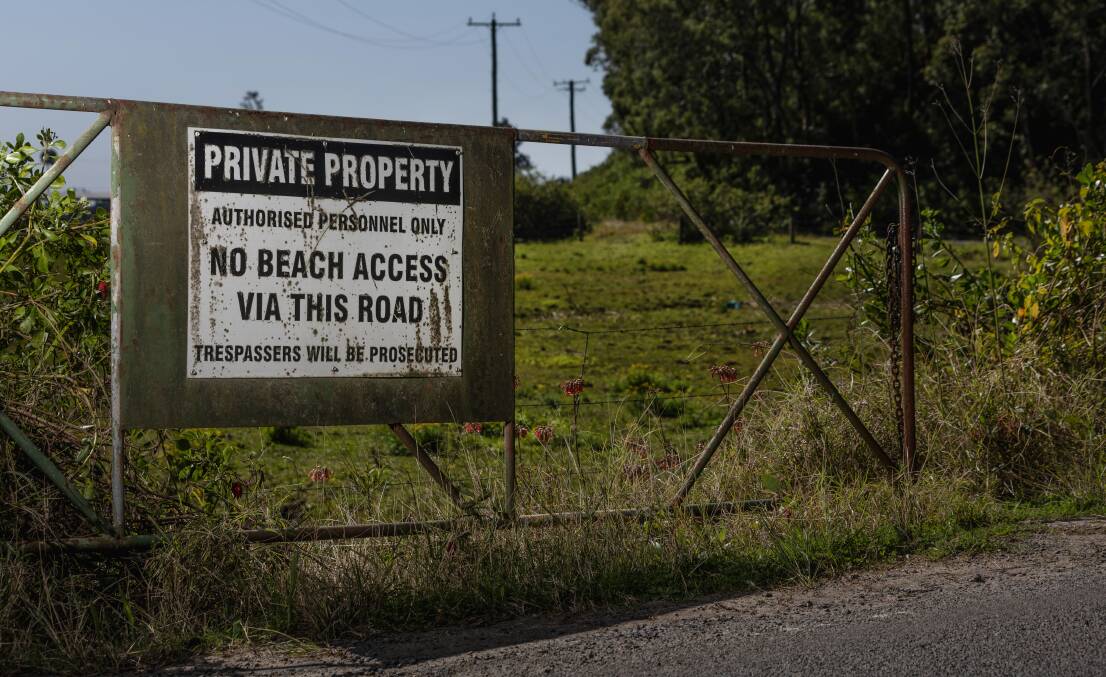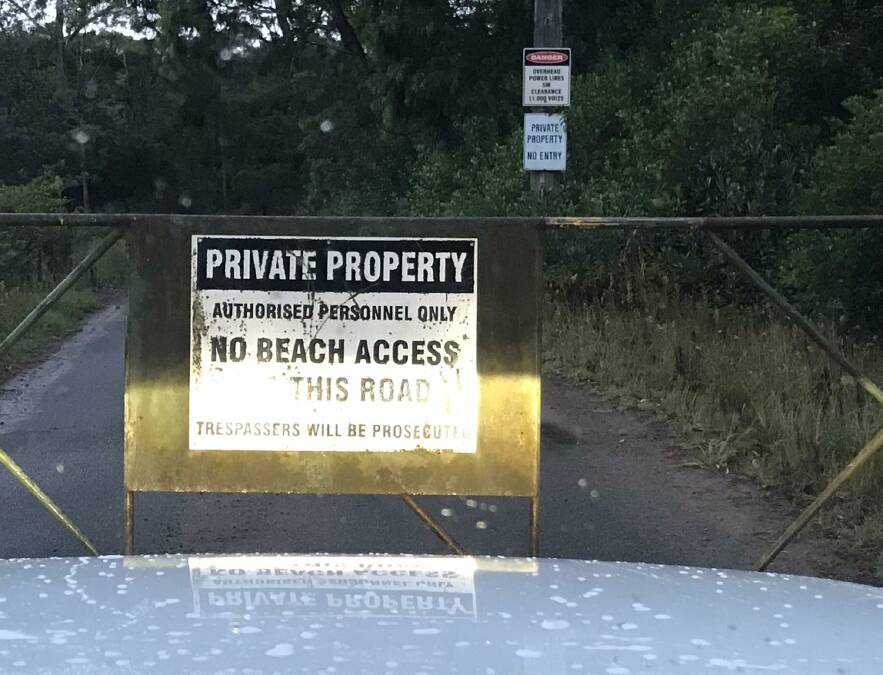A STOUSH has developed over the ownership of a Port Stephens road, with the council saying it is unable to confirm the road's status and a research company director alleging he was asked to pay a fee to use it.
The dispute over access to the Stockton Bight Track has brought a pilot project using plants to remove PFAS from the soil at Williamtown to a grinding halt.
Baayom, a company established to explore the possibility of using phytoremediation for cleaning contaminated soil and exploring ways to process contaminated plants, purchased some land on Lavis Lane for the project.
But founding director Raef Newitt said it's behind schedule due to failed negotiations with the Towers family, which owns a sand mining operation along the same road.
According to him, "deceptive and misleading" signs have been placed across the Stockton Bight Track along with a gate - which he understood to be a public road.

"When we tried to negotiate with the Towers' they said we need to pay to use the 'public' road, we then asked our surveyor who said it's a public road, the council [Port Stephens] wrote back to us and said it's a public road," he said, adding that small parts of the carriageway appear to go over the Towers' property.
A picture of the gate taken in January shows it closed across the road with a sign that reads 'Private property, authorised personnel only, no beach access via this road, trespassers will be prosecuted'.
The Newcastle Herald contacted Julie Towers, who declined to comment.
Mr Newitt was told via email by Port Stephens Council representatives in May that the Stockton Bight Track is a public road for which it is the roads authority.
But, when contacted by the Herald with more than 10 questions about the matter in August, a council spokeswoman said it was unable to confirm whether the road is a public road and that it was investigating further.
"Public roads are for public use and council is investigating this report of signage and a gate across the Stockton Bight Track," she said.

Mr Newitt said he needs access to the road because the project has to be done as a field study, not in a lab.
"We're going to miss our first plant, and we need to do two plants to get enough data points to have proof of concept and we were meant to have access straight away," he said.
"Once we are finished it becomes a locked down area for Indigenous planting, a small hobby farm and bees and we feel it can create a really positive environment around the area rather than the negative one that currently exists.
"They're trying to make us pay to use the 'public' road."
He said Baayom has petitioned the council under the Roads Act 1993 to have the situation resolved.
It's not the first time there have been issues regarding access to the road.
About a decade ago, the Stockton Bight Track was at the centre of a controversy involving former Port Stephens mayor Bruce Mackenzie's Salt Ash sand mine and the Towers family.
It resulted in the council being sued for $8 million after it compulsorily acquired part of the Towers' land at Williamtown to build the Stockton Bight Track, which had been gazetted more than a century earlier but was never built.
At the time, the Towers alleged they had struck a deal with Cr Mackenzie in 2006 that would have earned them $1 for every tonne of sand mined at Macka's Sand in exchange for access to the mine across their property.
Macka's Sand pulled out of the deal and opted to develop the Stockton Bight Track and a private haul road for access instead.
The Towers family alleged at the time that the council's $53,000 compulsory acquisition fee did not factor in the revenue lost in their deal with Cr MacKenzie.
In July 2012, the council voted to backtrack on its compulsory acquisition of part of the Towers family property for the road in the hopes of ending the $8.55m challenge against it.







